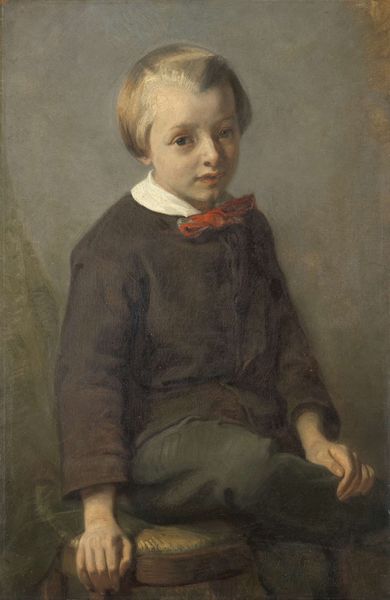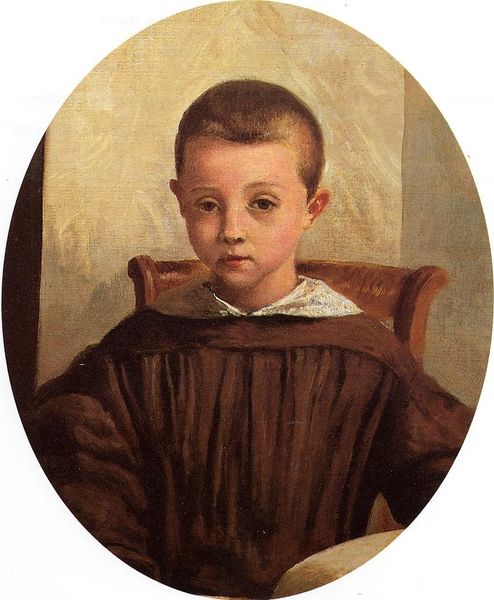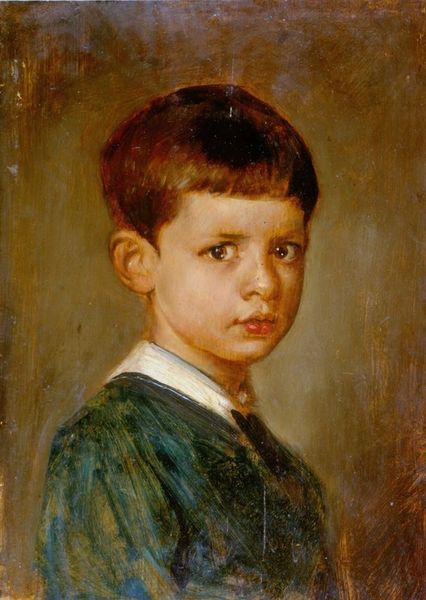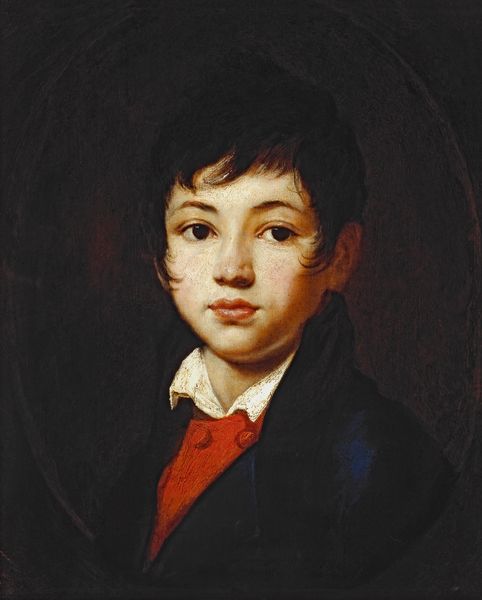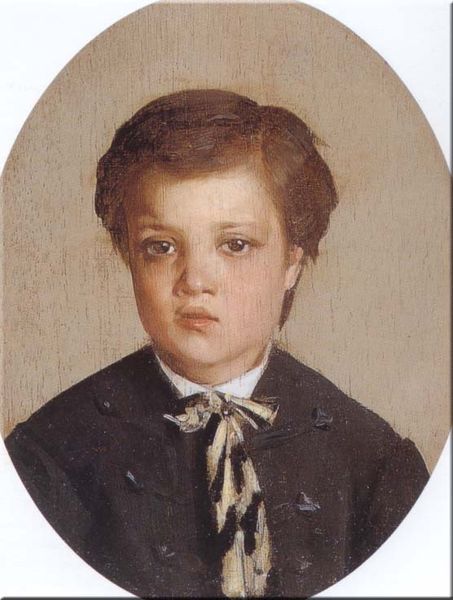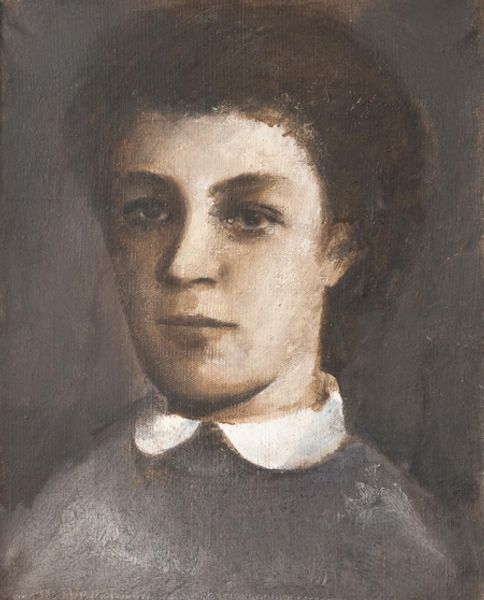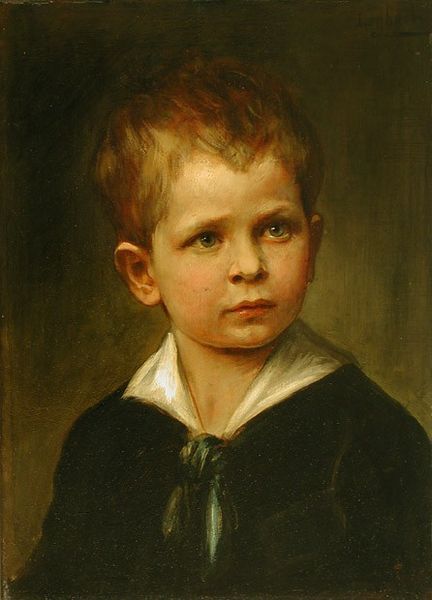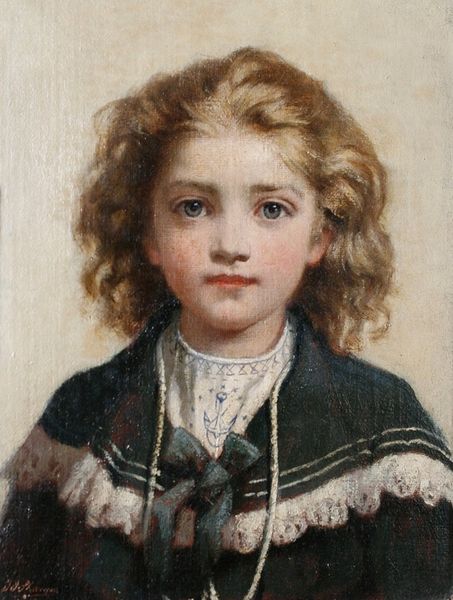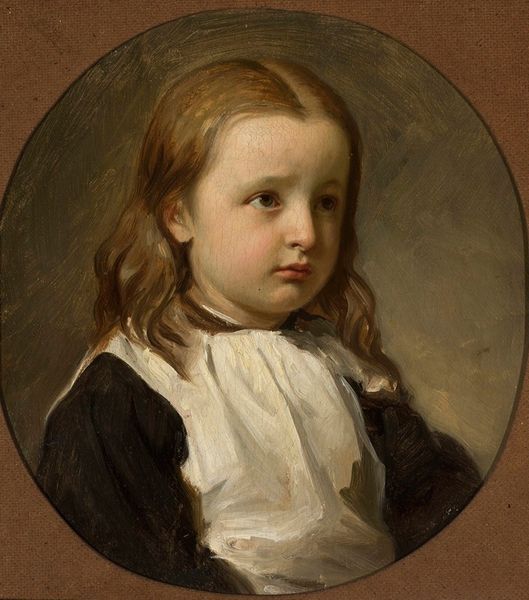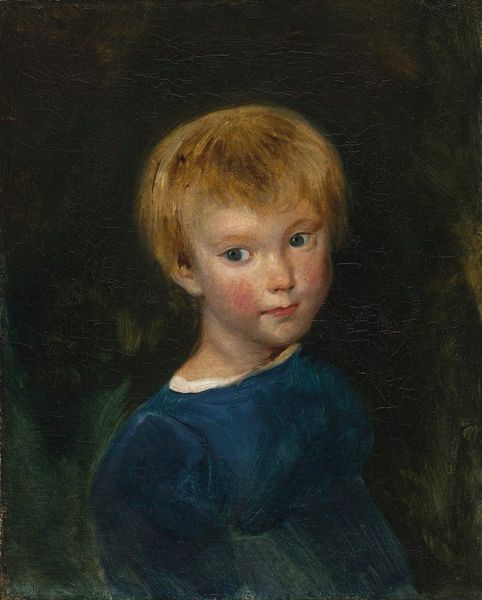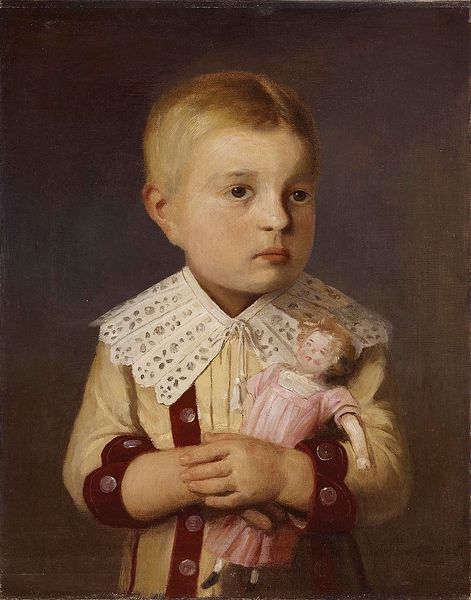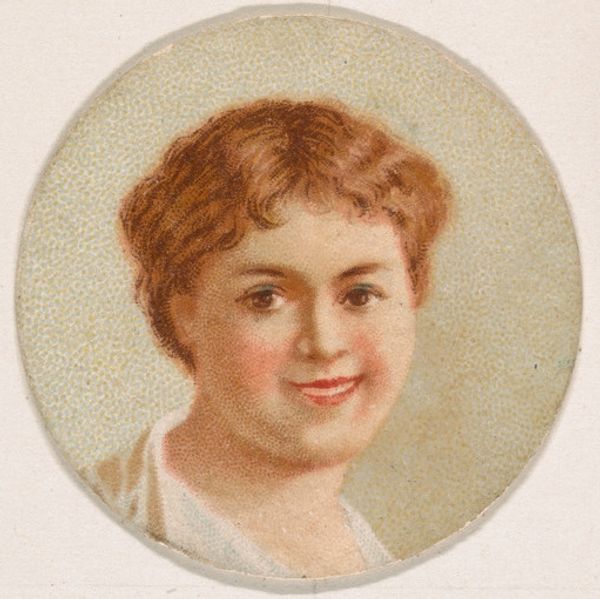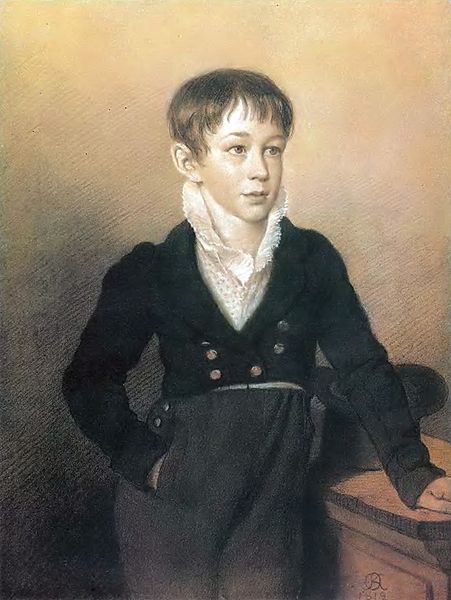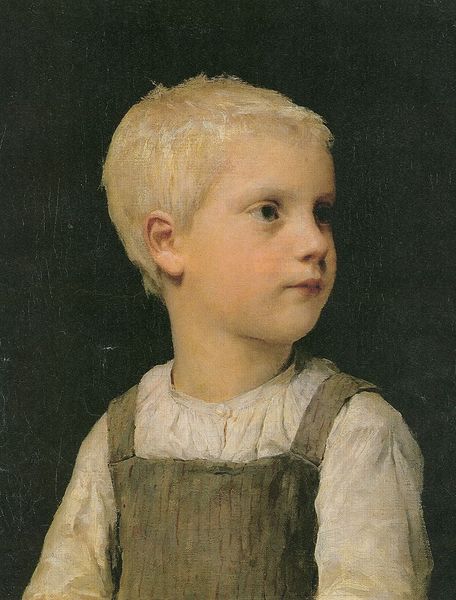
Copyright: Public Domain: Artvee
Paul Delaroche painted this portrait of his young son, Philippe-Grégoire, likely in France during the first half of the 19th century. Here, Delaroche has depicted his son with a sensitivity that elevates him beyond simply being a child of privilege. Children's portraiture in this era reflected evolving ideas about childhood itself. Increasingly, children were seen not just as miniature adults, but as individuals with unique emotional and intellectual lives. Delaroche, who achieved great success painting historical scenes for a public audience, brings a similar sense of drama and feeling to this work. His son's direct gaze and folded arms project an air of quiet confidence. Is this portrait a comment on the social structures of its time? Perhaps it reflects a growing emphasis on domesticity and the importance of family within the emerging bourgeoisie. The art historian relies on a range of sources to understand such paintings. We can examine the artist's biography, contemporary art criticism, and social histories of childhood. Each clue helps us interpret the meanings embedded in the artwork.
Comments
No comments
Be the first to comment and join the conversation on the ultimate creative platform.
